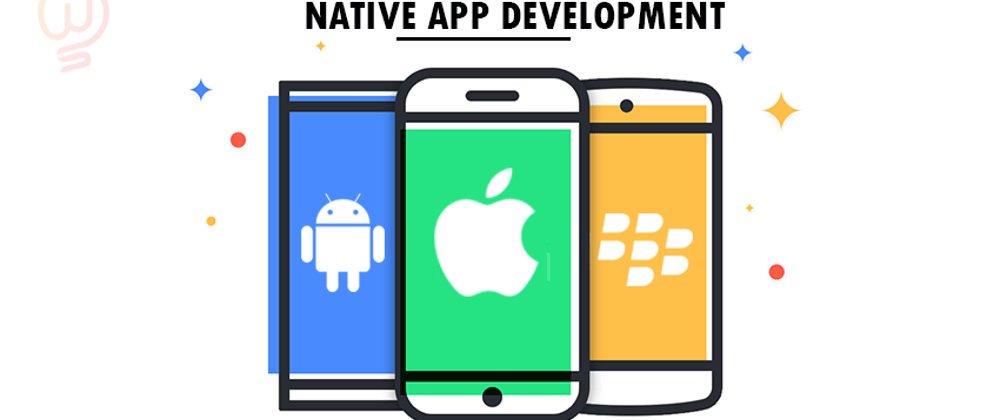If you’re in a dilemma and unable to decide what should you choose for your business, a native app or a web-based app, this article is for you. Here, in this blog, I’ve discussed the major benefits of building native apps for your business and the reasons to choose native app development.
Whether you’re building a FinTech app such as Alley Assist, Eno, or Erica for tracking account balances, viewing available credit and checking transactions or a MedTech app that helps to monitor blood sugar, you’ll have to first decide if you want to build a web-based app or a native app.
Today’s app stores are being crowded with millions of apps. Seeing the tough competition among these apps, it’s important that you build an app that stands out from the rest. Native apps are fast, secure, and highly responsive. So, in order to stay ahead in the game, most of the businesses these days prefer native app development.
Benefits of Building a Native App
If you want to woo your customers and fully leverage the capabilities of a mobile device, building native apps can be a good option to go for. Let's have a look at all the benefits that building a mobile native app can offer.
Even tech giants such as Microsoft, Apple, and Google are investing in native apps. For instance, SwiftKey is one of the most popular swipe keyboards that is designed for both Android and iOS. Swift Key was developed as a native app. Its functionality differs on each platform. Because of the native app development approach, SwiftKey is fast and provides many different platform-tailored features.
Uber, a ride-sharing app, is another example of a native app that successfully handles 15 million trips each day. Just like Swiftkey, Uber is a native app. It provides a different user experience on each platform. One of its unique features is that the app has a 2D interface for Android and a 3D one for iOS in order to avoid affecting the performance and user base of either operating system.
Discussed here are some of the major advantages of native mobile app development. Let’s read about these advantages in detail.
Native Apps Have Good Performance
One of the greatest benefits of building native apps is that native apps have good performance. They are fast, secure, and responsive which is why most of the businesses now prefer to build native mobile apps.
With native mobile app development, the apps are created and optimized as per the requirements of the specific platform. As a result, the app exhibits a high level of performance.
Native apps are fast and highly responsive because they are built for a specific platform. These apps are compiled by using the platform’s core programming language and APIs. As a result, native apps are much more efficient and perform really well.
Native apps work on the device’s operating system. In simpler terms, native apps have complete access to all the hardware and functionality of a device.
This enables the device to store all the details of the app. As users navigate through a native mobile app, the contents and visual elements do not take much time to load as they are already stored on the phones. This enables the users to load files and images in less time, thus enhancing the overall user experience.
The platforms provide app developers with standardized SDK, or software development kit, a kit that contains a set of tools, code samples, libraries, documentation, and guides that allow developers to build apps on a particular platform.
The SDKs, combined with a powerful set of tools for building native apps, deliver high performance and good user experience which is one of the major advantages of native mobile app development.
Native App Development Tends To Have Fewer Bugs
Let’s discuss more on the reasons to choose native mobile app development and why businesses these days prefer to choose native mobile app development.
Maintaining two different applications in one codebase is much more difficult than maintaining two applications in two codebases. With native app development, the chances of any bug to occur are very few.
Hybrid apps access the features of an operating system through a bridge. This slows down the accessing speed of the apps and creates a frustrating user experience. The problem becomes more prominent as new versions of Android and iOS are released.
Every time new features are released in the UI kit, you need to wait for the cross-platform development tools to support it in hybrid app development. While developing a hybrid app, there is an extra added layer that you can’t control. This increases the chances of bugs to occur.
With native app development, the developers can have access to new software development kits (SDK) to build their applications with the most recent features.
Native Apps Offer a Better UX/UI
One of the biggest benefits of building a native app is that they offer a better UX/UI. Such apps can easily inherit their devices’ OS interfaces, making them look like an internal part of the device. This enhances the overall user experience offered by the app.
One of the biggest reasons to choose native app development is its incredible ability to render an impeccable user experience. Native apps are built specifically for an operating system. In native mobile app development, the apps stick to the guidelines as specified by the operating system.
These guidelines align the native apps to the specific operating system for which they are built. As a result, it becomes quite easy for users to understand the entire flow of the app and its functionality as they are already aware of the features of the operating system.
In today's digital age, user experience plays a crucial role in online businesses. It is ultimately the ‘make or break’ aspect that determines the success of your app.
A native app offers a better UX/UI than a web app. A web app is dependent on scattered web pages, servers, and browsers. Thus, it’s impossible to maintain a consistent and positive UX across all the platforms and devices in a web app.
But it’s not the same with native apps. Native apps are specifically coded and developed for a specific platform. They are optimized and updated solely for that purpose. You can easily keep a track of its performance with the help of data analytics which you cannot do with web apps.
Final Words
Developing an app is a challenging task. Why would anyone want to spend such a huge amount of time and money in making an app that fails to allure users? With native app development, you can make a fast, secure, and responsive app.
After reading these major advantages of native mobile app development, I’m sure you’d go for native app development to take your business to the next level.
Remember, you get what you pay for. Presenting a great app with an enticing user interface is just good branding. A good app helps to lift the online reputation of your brand. Once your app is out in the market, do not forget to rework on the shortcomings. Keep your app updated, and avail the top-notch services for maintenance of your app at regular intervals.







Top comments (0)